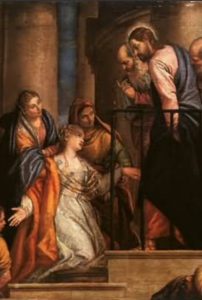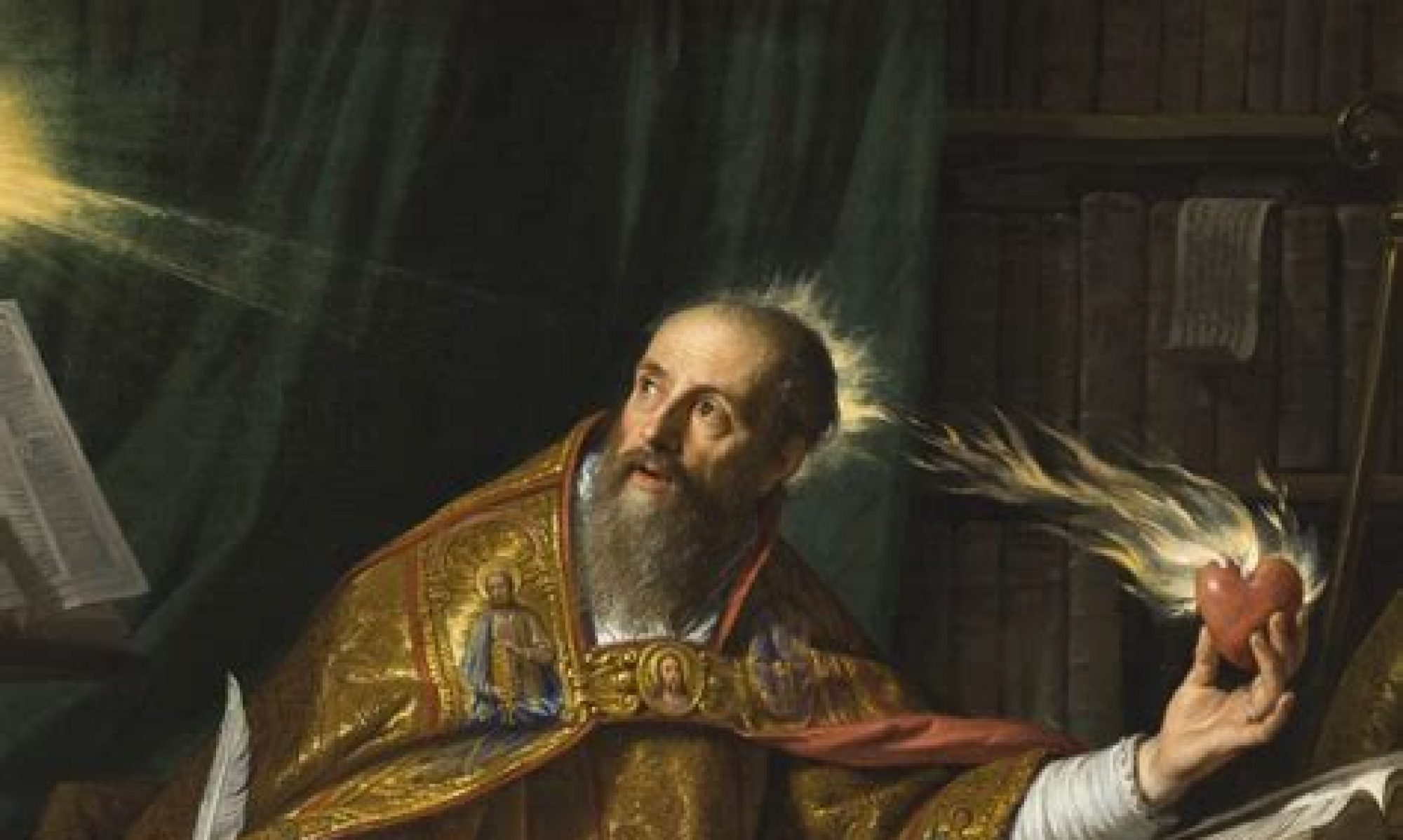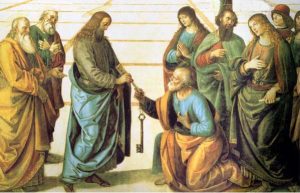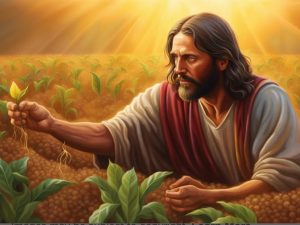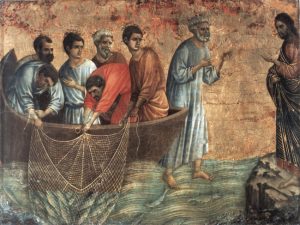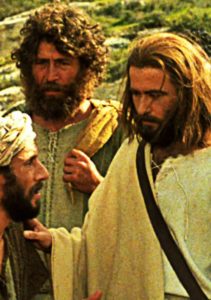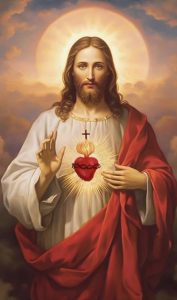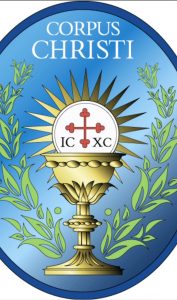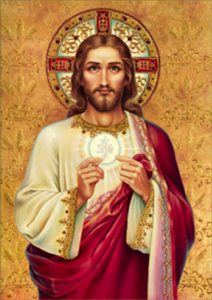- Wisdom 1:13-15; 2:23-24
- Psalm 30:2, 4, 5-6, 11, 12, 13
- 2 Corinthians 8:7, 9, 13-15
- Mark 5:21-43 or 5:21-24, 35b-43
Today is the 13th Sunday in Ordinary Time. I always appreciate the liturgy of the Church because it brings us to the amazing stories about Jesus’ miracles. Jesus doesn’t want us to die but wants us to be saved from death. In fact, He never rejoices in death because He knows that it is a consequence of sin. Those who are with the devil only experience death. Thus, our preference of eternal life could be attributed to fostering our good attitudes of staying in love with and being with God, who is life.
I believe that summer season comes to make us realize the cycle of nature. The season brings to everyone a new perspective of being alive. So let us always be grateful and not be grumbling about the things we experience while here on earth. We must understand that unusual increase of heat in the atmosphere is the consequence of negligence and not taking care of our mother earth. We, in one way or the other, contribute to climate change that is obviously affecting the world. Can we contribute a little by changing our lifestyle, like proper disposal of waste at home and conservation of water and energy, which are just simple ways to show our love for our environment? Wasteful ways can be avoided. Think of the misery and needs of others and also the next generation to come.
The first reading taken from the book of Wisdom reminds us that when we choose God, we choose eternal life and, therefore, going against the will of God, we turn towards death. This book clearly says, “God did not make death, nor does He rejoice in the destruction of the living.” (v.13)
The second reading from the 2nd letter of St. Paul to the Corinthians focuses on being poor. St. Paul says, “for your sake He became poor, so that by His poverty you might become rich.” (v.9) To further understand this writing of St. Paul, Jesus became human and exposed Himself to human situations of being inclined to all kinds of vulnerabilities, like death and other sufferings. However, according to Jesus’ example of generosity and the sharing of our material blessings with others, we also share God’s gift to provide for those who have less. It is of Christ being poor that others learn to be generous.
Death snatches away from us many things which we cannot hold on to when we die, but our loving relationships with others remain to be the measurement of how good we are here on earth. Material gains will disappear, but friends and family will be left behind with cherished memories about us, right?
The gospel from St. Mark narrates to us two separate stories about the woman who suffered with hemorrhages for 12 years and a 12-year-old girl who was raised from the dead by Jesus . In our reflections today, we focus on some important messages which are relevant to understand this gospel pericope.
First, the story about the woman with profuse bleeding for many years, who maybe got to the point of hopelessness. She heard about Jesus, and then what she wanted was an intervention from the man who had gained more people by being a miracle worker. She reaches out to Jesus for healing because she had tried everything and spent much of her money, but nothing happened to her. She was healed because of her faith in Jesus. It was a coincidence that the bleeding she was continuously experiencing speaks of two things: Blood in Leviticus 13:19-29 in Jewish tradition is a participation in the life of God, On the other hand, it can be a call for purification because it refers to impurities and uncleanness. Going to Jesus in faith is a new purifying experience of believing in Jesus who comes to give life as His mission on earth.
Second, Jesus journeys to the house of the official for another mission. There was commotion among the people thinking the little girl was already dead. However, the faith of the father in Jesus was so strong that it made his daughter came back to life. When Jesus said these words, “Little girl, I say to you, arise,” the little girl gets up and walks around. The “people were utterly astounded.” (vv.41-42). Jesus again brought back life, not only to the woman with hemorrhages, but also to the little girl. Jesus wants us to be saved and have life.
Third, this gospel story reminds us of the necessity of Faith in Jesus. I do believe that this is not a story of the past but our present story and our own personal experience with Jesus that we too are recipients of Jesus’ healing miracles. We are made whole because we have faith like the woman and the synagogue official who approached Jesus about his child. We must be humble to plead help from the Lord in faith.
What is Jesus telling us? Jesus says, “Do not be afraid; just have faith.” Several times in the scriptures, we find these words, “do not be afraid.” My understanding is just like a child when asked by the parents to come to them Without hesitation the child will exert an effort to come to them, with no worry and not being hesitant, but having great confidence. In the same way, in our Christian life, we need to let go and entrust everything to God. Miracles happen every day without noticing them.
Now the challenge is this; when we have faith-experienced healing, it provokes everyone not only to remain in the consolation of believing, but it causes us to be converted, to act in kindness, and to act in love towards others. If we have faith, it should not be personal, but a communal sharing with God to improve the lives of others and the world.
God bless you.
Fr. Arlon, osa
————————————
El Dictado del Corazón
Decimotercer Domingo del Tiempo Ordinario, Año B
- Sabiduría 1:13-15; 2:23-24
- Salmo 30:2, 4, 5-6, 11, 12, 13
- 2 Corintios 8:7, 9, 13-15
- Marcos 5:21-43 o 5:21-24, 35b-43
¡Hola a todos! Puede que les sorprenda verme, ya que ya me había despedido de todos el domingo pasado. Pero el plan de Dios para mi transición de parroquias es diferente de lo que yo tenía planeado. Después de Misa, tengo que ir a subir mis cosas a mi auto y mañana comenzaré mi nueva misión en la Catedral de Santo Tomás de Aquino en Reno. He mencionado que no se trata de una despedida porque volveré de vez en cuando. Además, oro por su apoyo a la educación de los seminaristas agustinos en las Filipinas, ya que necesitan mucho de su donación. ¡sean generosos!
Esta temporada de verano nos hará recuerda del ciclo de la naturaleza. La temporada ofrece a todos una nueva perspectiva de estar vivos. Así que estemos siempre agradecidos y no nos quejemos de las cosas que experimentamos mientras estamos aquí en la tierra. Debemos entender que el inusual aumento de calor en la atmósfera es consecuencia de la negligencia por no cuidar la Tierra. Nosotros, de una forma u otra, contribuimos al cambio climático que está afectando al mundo. Podemos contribuir un poco a cambiar nuestroestilo de vida, como la correcta eliminación de residuos en casa, y la conservación del agua y la energía, son sólo formas sencillas de mostrar nuestro amor por nuestro medio ambiente. Se pueden evitar los despilfarros, pensemos en la miseria de los demás, en las necesidades y en las generaciones futuras.
La primera lectura del libro de la Sabiduría nos recuerda que cuando elegimos a Dios, elegimos la vida eterna, yendo en contra de la voluntad de Dios, nos volvemos hacia la muerte. Este libro dice claramente: “Dios no hizo la muerte, ni se regocija en la destrucción de los vivos”. (v.13)
La segunda lectura de la segunda carta de San Pablo a los Corintios se centra en ser pobre. San Pablo dice: “Por nosotros se hizo pobre, para que nosotros con su pobreza nos enriqueciéramos”. (v.9) Para comprender mejor este mensaje de San Pablo, Jesús se hizo humano y se expuso a la situación humana de estar inclinado a todo tipo de vulnerabilidades como la muerte y otros sufrimientos. Sin embargo, según el ejemplo de generosidad de Jesús y de compartir nuestras bendiciones materiales con los demás, también compartimos el don de Dios de proveer para aquellos que tienen menos. Es de Cristo siendo pobre que otros aprenden a ser generosos.
La muerte nos arrebata muchas cosas a las que no podemos aferrarnos cuando morimos. Pero nuestras relaciones amorosas con los demás siguen siendo la medida de lo buenos que somos aquí en la tierra. Las ganancias materiales desaparecerán, pero los amigos y familiares quedarán atrás con recuerdos preciados sobre nosotros, ¿verdad?
El evangelio de San Marcos nos narra dos historias distintas: una mujer que sufrió hemorragias durante 12 años y una niña de 12 años que fue resucitada por Jesús de entre los muertos. En nuestras reflexiones de hoy, nos centramos en algunos mensajes importantes que son relevantes para comprender este evangelio.
En primer lugar, la historia de la mujer que sangraba abundantemente durante muchos años puede haber llegado al punto de la desesperanza. Ella escuchó de Jesús, entonces lo que quería era una intervención de un hombre que había ganado a más personas por ser hacedor de milagros. Ella acude a Jesús en busca de curación porque lo intentó todo y gastó gran parte de su dinero, pero no le pasó nada. Ella fue sanada gracias a su fe en Jesús. Fue una coincidencia que la sangre que experimenta continuamente habla de dos cosas: La sangre en Levítico 13:19-29 en la tradición judía es una participación en la vida de Dios, por otro lado, puede ser un llamado a la purificación porque se refiere a las impurezas y a la inmundicia. Ir a Jesús en fe es una nueva experiencia purificadora de creer en Jesús que viene a dar vida como Su misión en la tierra.
Segundo, el viaje de Jesús a la casa del funcionario para cumplir otra misión. Hubo una conmoción de gente pensando que la pequeña ya estaba muerta. Sin embargo, la fe del Padre en Jesús fue fuerte lo que hizo que su hija volviera a la vida. Cuando Jesús dijo estas palabras: “Niña, te digo, levántate”, la niña se levanta y camina. La “gente estaba completamente asombrada”. (vv.41-42). Jesús volvió a traer vida no sólo a la mujer con hemorragia sino también a la niña. Jesús quiere que seamos salvos y tengamos vida.
En tercer lugar, esta historia del evangelio nos recuerda la necesidad de la fe en Jesús. Creo que esta no es una historia del pasado sino nuestra historia presente y nuestra experiencia personal de Jesús de que nosotros también somos destinatarios de los milagros curativos de Jesús. Somos sanos porque tenemos fe como la mujer y el oficial de la sinagoga que se acercó a Jesús. Debemos ser humildes para pedir ayuda al Señor con fe.
¿Qué nos está diciendo Jesús?: “No temas; solo ten fe.” Varias veces en las Escrituras encontramos la palabra “No temas”. Mi comprensión es como la de un niño cuando sus padres le piden que se acerque a ellos, sin dudarlo, el niño hará un esfuerzo para acercarse.
dobladillo, no te preocupes, sin dudar, pero con gran confianza. De la misma manera, en nuestra vida cristiana, necesitamos dejarnos llevar y dejar a Dios, confiarle todo a Dios. Un milagro ocurre todos los días sin darnos cuenta.
Ahora el desafío es este; cuando tenemos experiencia de curación, provoca que todos no sólo permanezcan en el consuelo de creer, sino que nos hace convertirnos, actuar con bondad y amor hacia los demás. Si tenemos fe, no debe ser sólo un compartir personal sino comunitario en comunión con Dios para mejorar las vidas de los demás y del mundo.
Dios los bendiga.
P. Arlón, osa
